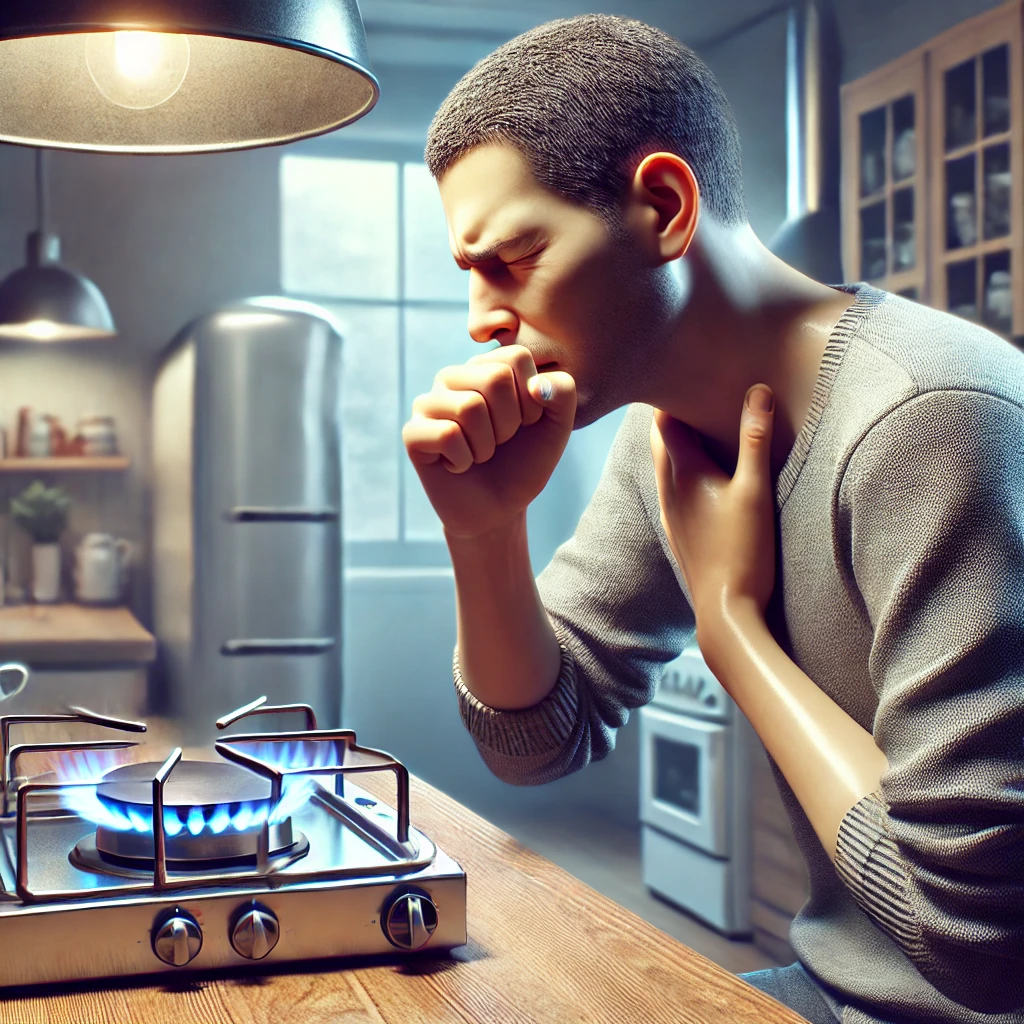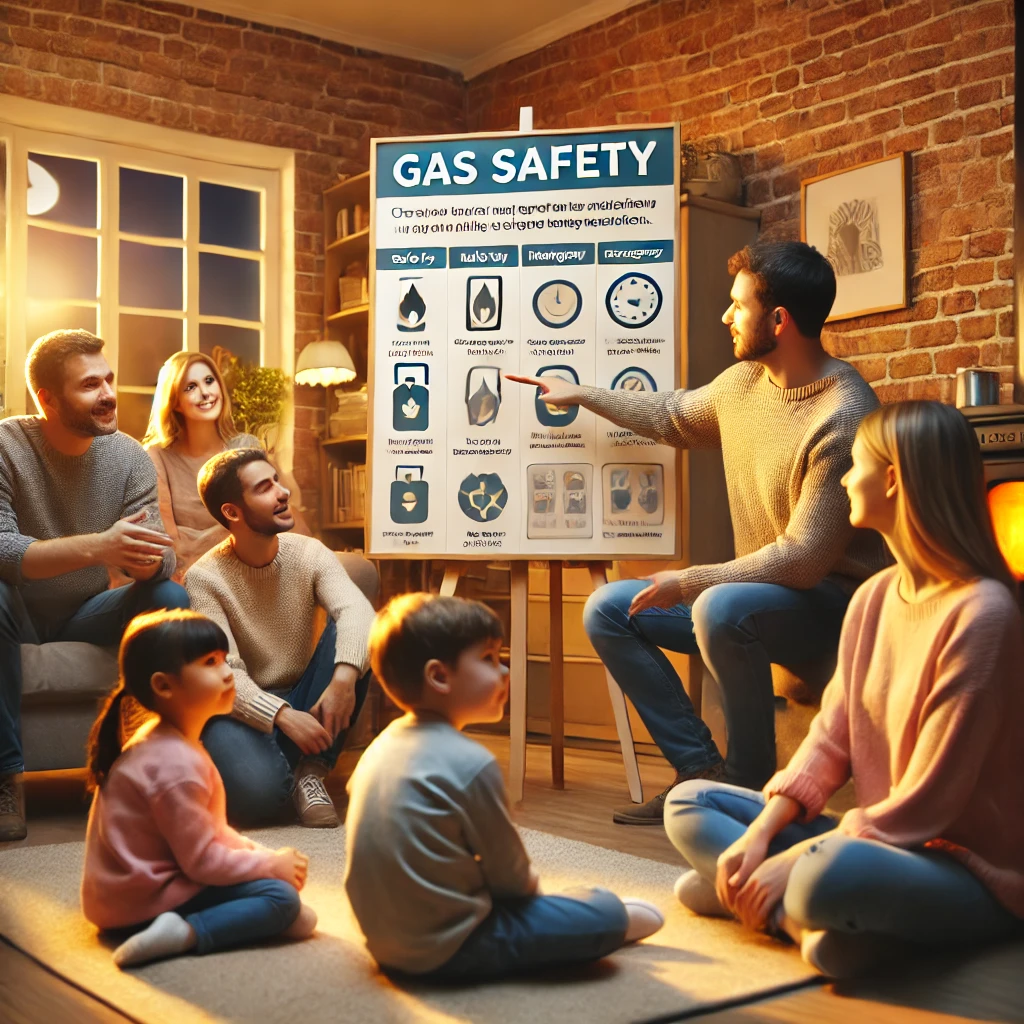

Natural gas is a staple energy source in many households, powering everything from stoves to water heaters. While it is a convenient and efficient resource, it comes with inherent risks. Gas leaks, though uncommon, can pose significant dangers, including fire, explosions, and health hazards. Understanding gas leak symptoms and effective detection methods is essential for ensuring the safety of your household.
Gas leaks often present subtle signs that can be overlooked if you are not vigilant. Below are the most common slow gas leak symptoms:
By familiarising yourself with these signs, you can act swiftly and mitigate potential risks.
Exposure to leaking gas can lead to a range of health symptoms. Being able to recognise these symptoms early can be life-saving.
Breathing problems are often the first noticeable signs of a gas leak. This is because natural gas displaces oxygen in the air, leading to difficulty breathing. For individuals with pre-existing conditions like asthma, this displacement can significantly exacerbate their symptoms.
Gas exposure can interfere with the brain’s oxygen supply, causing a range of neurological effects. These symptoms might initially feel like everyday fatigue or stress, but they can quickly escalate if the exposure continues.

Many people dismiss gas leak symptoms because they mimic common illnesses like the flu. However, nausea and vomiting caused by gas exposure can persist longer than typical stomach ailments.
Irritation to your eyes or throat is another indicator of a gas leak. This can occur due to the chemicals added to natural gas for detection or from prolonged exposure to the gas itself.
Direct exposure to gas can sometimes lead to skin issues. While less common, these symptoms indicate prolonged contact or high levels of exposure.
Long-term exposure to gas leaks can lead to various other symptoms, some of which might seem unrelated at first glance. These can impact both physical and mental health.
If you notice any of these signs, act quickly: extinguish sources of ignition, avoid using electrical devices, and evacuate everyone from the premises.
Swift and decisive action is crucial if you suspect a gas leak in your home. Follow these steps:
Prevention is always better than cure. Here are some ways to minimise the risk of gas leaks:
Keep Emergency Contacts Accessible: Ensure that contact numbers for your utility company and emergency services are readily available.

Recognising gas leak symptoms is vital for protecting your home and family from potential hazards. Early detection can prevent accidents, so it’s essential to familiarise yourself with gas leak signs and symptoms, such as foul odours resembling rotten eggs, hissing sounds near gas lines, and visible damage like cracks or bubbles in standing water. Higher than usual gas bills or unexplained dead houseplants may also signal slow gas leak symptoms.Prolonged exposure to a gas leak in house symptoms can lead to life-threatening conditions, making immediate action essential. For professional assistance, contact your local utility provider or emergency services immediately. If you’re in Melbourne and need expert help, visit Melbourne Gas Plumber to address your concerns promptly and ensure your safety.


Fill the form below and we’ll get back ASAP!

MGP! Thank you for help, honest pricing and high quality work. Thank you to Joe for pricing and the boys involved for replacing my hot water tank and fixing my gas leak for a reasonable price. 5 star response, 5 star service and 5 star price.
Joe was great. Very professional and quick. Gas hot water heater needed replacing, he was honest and upfront about what our options were. System was sourced and replaced within a couple of hours.
Fantastic service very responsive Joe is highly recommended and works very clean and neat..... good job well done....very happy... will use again and again

At Melbourne Gas Plumber, we're here to handle all your gas plumbing needs throughout Melbourne. With over 40 years of experience, we bring extensive local knowledge and expertise to every job.
QUICK LINKS
OPENING HOURS
Open 24/7
